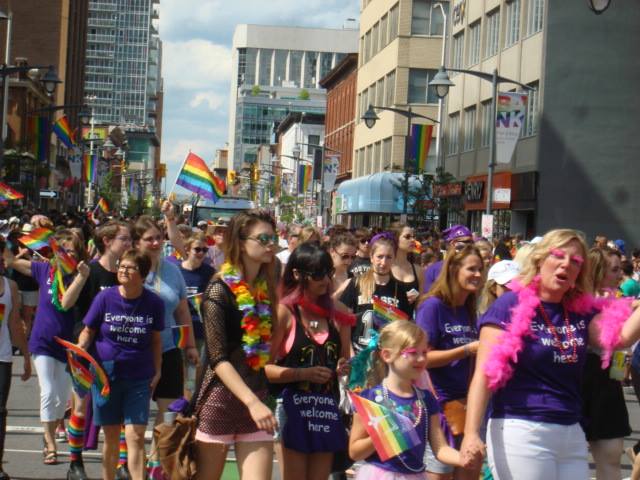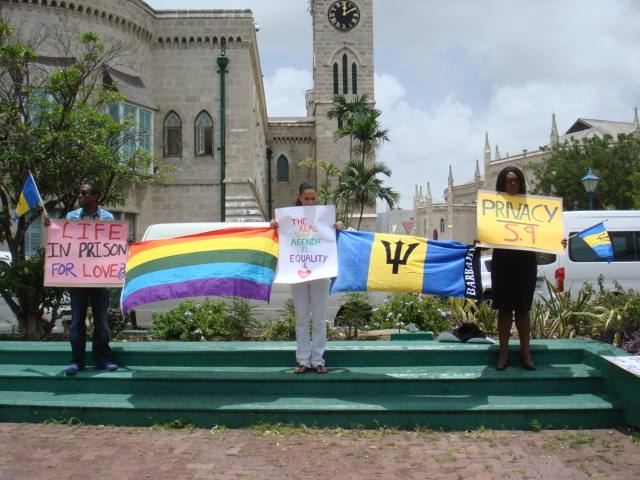March for justice, or stand? 2 experts compare tactics
Colin Stewart is a 45-year journalism veteran living in Southern…

Denis LeBlanc is a pioneer of the LGBTI liberation movement in Canada and has been a visible activist for SOGI equality for over 40 years. He was among the first Grand Marshals for Ottawa Pride.
Maurice Tomlinson is a leading LGBTI activist from Jamaica and has also been collaborating with local activists across the Caribbean to hold public visibility campaigns. These included the first-ever Stand for Equality and Inclusion in Barbados in mid-August.
Both Maurice and Denis were honored as marshals at the 30th anniversary of Ottawa Pride on August 23.
In this post, each of them reflects on the different approaches to visibility that they pursued based on their local contexts.

Denis LeBlanc:
Maurice Tomlinson and his colleagues, Caribbean activists, have invented a new activist term and method of action — a stand. This is not quite a picket, as there is not the usual moving about in circles to avoid arrest, and it’s not a demonstration, as it usually involves four to six people — a small, intimate show of solidarity at an important place — a stand. Congratulations, Maurice, for doing things your unique way — organizing an effective Stand for Equality & Inclusion in beautiful Barbados. Visibility is very liberating.

In Canada, we picket when we have small protests. We move around, usually in line, with turnabouts not far from our picketing object. We had to remain on the sidewalk to avoid getting fines or risking arrest back in the 1970’s. We couldn’t just stand about. I think that comes from the unions here having the legal right to picket anywhere. We used to fasten our signs on pickets (from the hardware store, used to make picket fences, still common in those days). I think the logic goes that if we had to move about while picketing, we would eventually go away; we did — after the media had taken photos and interviewed spokespersons.

Maurice Tomlinson:
In the Caribbean a moving parade requires a police permit, while standing still does not!
And the last time I tried to arrange a police permit for a Walk for Tolerance in Jamaica, the police “lost” my application three times. I finally had to do a “solo sit-in” in the police station until my request was granted. On the day of the walk, only one police officer on a motorbike showed up for a walk that we notified them would have at least 200 persons. Then the officer rode at the front of the parade so, even if there was any trouble, he would have been of little help.

Our 15 minutes to half-hour flash stands are now usually unannounced, and conducted where there is high vehicular but low pedestrian traffic. We therefore get many eyeballs for our demonstration, with minimal risk of retaliation.
We also provide masks and blank t-shirts for those stand participants who wish to remain anonymous.
In our small micro-states of the Caribbean, where there is generally no protection against SOGI discrimination, anonymity is essential to minimize professional, educational and housing backlash.
All these methods will be employed for the Flash Stand for Montego Bay Pride 2015 on Oct. 25!

Click below for more photos:
- From Ottawa Pride 2015.
- From Barbados Stand 2015.





Reblogged this on Fairy JerBear's Queer World News, Views & More From The City Different – Santa Fe, NM and commented:
Comparing tactics in the struggle for LGBTQIA equality…